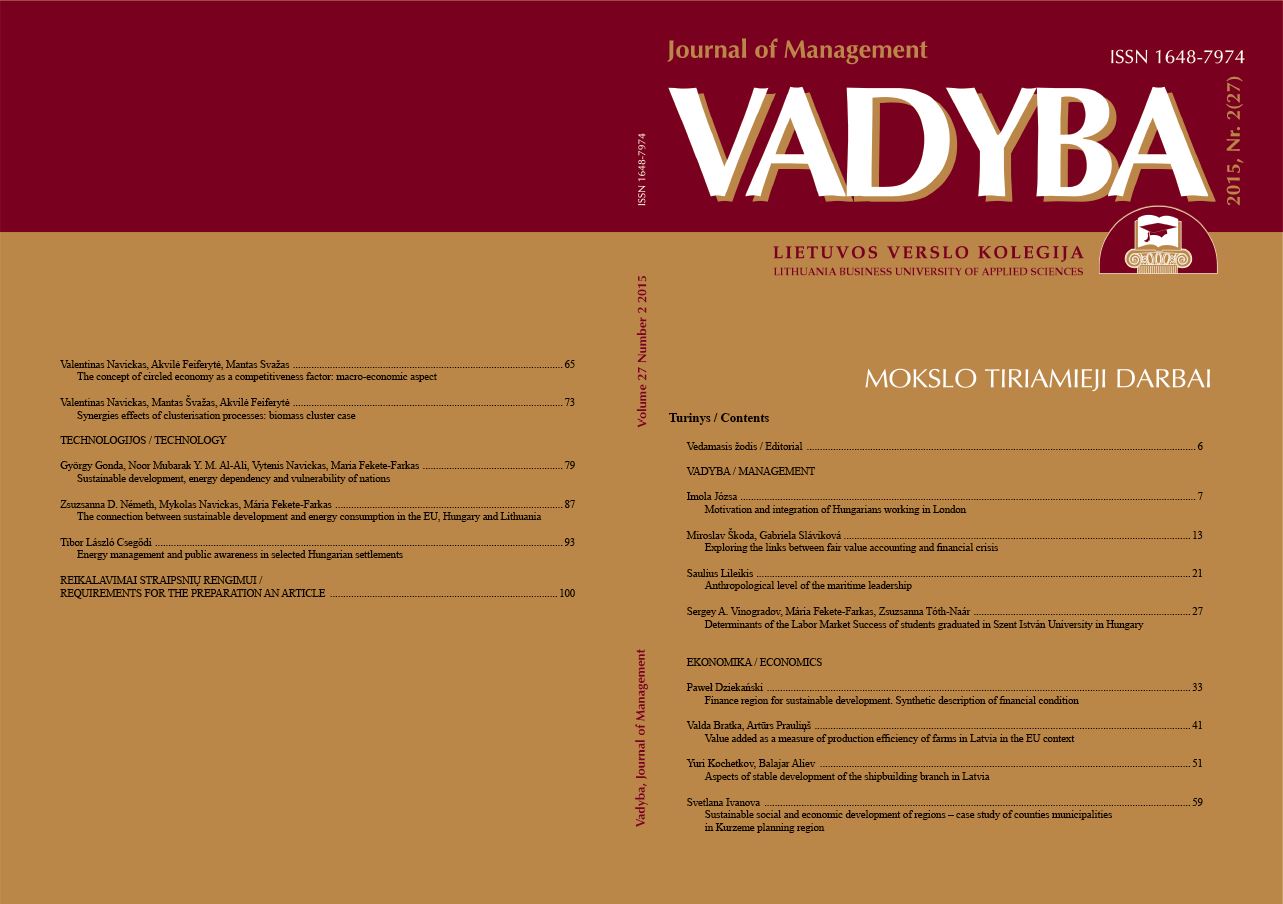THE CONCEPT OF CIRCLED ECONOMY AS A COMPETITIVENESS FACTOR: MACRO-ECONOMIC ASPECT
THE CONCEPT OF CIRCLED ECONOMY AS A COMPETITIVENESS FACTOR: MACRO-ECONOMIC ASPECT
Author(s): Valentinas Navickas, Akvilė Feiferytė, Mantas ŠvažasContributor(s): Valentinas Navickas (Editor)
Subject(s): Social Sciences, Economy
Published by: Lietuvos verslo kolegija
Keywords: circled economy; competitiveness; macro – economic factors; value chain; waste economy
Summary/Abstract: The rapid dispersion of the idea of circled economy is determined by the need for suitable and effective management of waste and resources. Today’s manufacturing processes are ineffective and wasteful; they use too much primary raw materials and do not recycle used products. Circular economy is only now receiving more attention from scientists, after European Commission published a communication „Towards a circular economy: A zero waste programme for Europe“. The object of circular economy is waste recycling, using it as materials for manufacturing or energy production. Due to the rapid growth of the economy over the recent decades, technologies, population migration from rural areas to urban, growing quality of life, amounts of waste are significantly increasing and becoming a serious ecological disaster in some heavily polluted areas. The international environmental agencies analyse negative impact of waste, focusing on pollution reduction and need of efficient recycling. Today, European countries with European Commission, implement zero waste policies, aiming to improve waste management and recycling efficiency. Zero waste policy is understood by scientists as unrealistic and unreachable goal in today‘s economy, but it works as a preventive measure to encourage countries to implement effective waste management and recycling policy. This situation leads to a growing interest among scientists concerning waste management opportunities and innovative technologies integration to ensure sustainable development while maintaining economic growth and the saving of natural resources. Circular economy implementation involves waste collection, transportation and recycling processes. Industry of waste management plays an important role not just in circular economy, but in helping to move away from linear production to efficient resources management for manufacturing and energy production sectors as a supplier as well.
Journal: VADYBA
- Issue Year: 27/2015
- Issue No: 2
- Page Range: 65-72
- Page Count: 8
- Language: English

